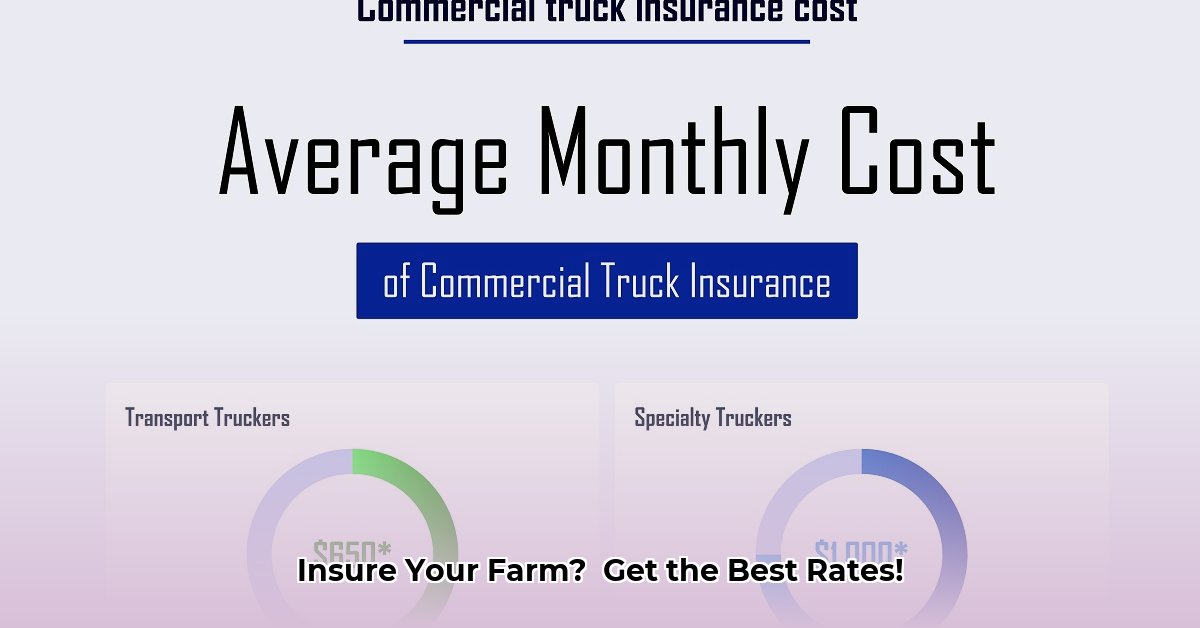
So, you're wondering, "How much will tractor insurance cost?" It's a great question, and the answer, unfortunately, isn't simple. The price of insuring your compact tractor depends on many factors. This guide will help sustainable farmers like you understand the cost and importance of protecting your vital equipment. We'll cover why you need insurance, the factors influencing cost, and how to secure the best rates. For more information on tractor pricing, check out this helpful resource on tractor pricing. Let's get started!
Why You Need Tractor Insurance (Even if Not Legally Required)
Your compact tractor isn't just a machine; it's the heart of your sustainable farm. It's a substantial investment representing years of hard work and representing your livelihood. Imagine the devastating financial consequences of theft, accident damage, or unexpected breakdowns. The repair or replacement costs could be crippling, potentially jeopardizing your entire operation. Tractor insurance acts as a crucial safety net, mitigating these risks and preventing a single event from wiping out your investment. Even if not legally mandated, the peace of mind it provides is priceless. Protecting your farm's future is an investment worth making. Don't gamble with your livelihood.
Factors Affecting the Cost of Tractor Insurance
Several key factors influence the premium you'll pay for compact tractor insurance:
Type of Tractor: The age, make, model, size, and features of your tractor significantly impact the cost. Newer, more technologically advanced tractors are generally more expensive to insure due to higher repair or replacement costs. Older models may have lower premiums, but their inherent risk might negate savings.
Location: Your farm's location plays a role. Rural areas may have lower premiums than urban areas due to a perceived lower risk of accidents. However, areas prone to natural disasters (floods, hurricanes, etc.) will likely result in higher premiums due to increased risk.
Coverage Level: Insurance policies offer varying levels of protection. Liability-only coverage protects you if you cause damage to someone else's property. Comprehensive coverage provides broader protection against theft, accidents, and various types of damage to your tractor, regardless of fault. Collision coverage specifically covers damage from accidents. The more extensive the coverage, the higher the premium.
Deductible: Your deductible is the amount you pay out-of-pocket before your insurance coverage begins. A higher deductible lowers your premium but increases your personal financial risk in case of a claim. Carefully consider this tradeoff.
Farming Practices: The impact of sustainable farming practices on insurance premiums is currently unclear. While some believe environmentally conscious methods might eventually lead to lower rates, more research is needed to establish a definitive link.
Getting the Best Deal on Tractor Insurance
Securing the best insurance rate requires proactive steps:
Get Multiple Quotes: Contact several insurers and compare their offerings. Don't settle for the first quote you receive. Ensure you're comparing policies with similar coverage levels for a fair comparison.
Understand Policy Details: Carefully review each policy's terms and conditions. Understand what is and isn't covered. Ask questions if anything is unclear. This step is crucial to avoid surprises later.
Consider Higher Deductibles: By opting for a higher deductible, you can often reduce your premiums. Weigh the potential savings against the increased risk of a larger out-of-pocket expense if a claim arises.
Explore Government Subsidies or Incentives: Research whether your area offers government programs or subsidies to help offset the cost of tractor insurance, particularly for sustainable agricultural operations. This assistance could significantly lower your costs.
Meticulously Document Your Operations: Keep detailed records of your tractor's maintenance, repairs, and overall farming activities. This detailed documentation is essential if you need to file a claim, as it will support your case and expedite the process.
Addressing the Gaps in the Market
The current market for compact tractor insurance, particularly for sustainable farmers, presents inconsistencies. There's a notable lack of transparency in pricing and policy standardization, leading to significant discrepancies in premiums. This highlights a need for more tailored products and greater transparency within the industry. Innovative approaches, like parametric insurance (which automatically pays out based on pre-defined events, such as hailstorms), represent a potential solution, offering more responsive and customized coverage.
Conclusion: Protect Your Investment
Protecting your compact tractor through insurance is a vital step in securing your farm's future. While the cost varies, understanding the factors that influence premiums and taking proactive steps to comparison-shop will help you find affordable, reliable coverage. Don't delay— safeguard your investment and your livelihood. Get insured today.